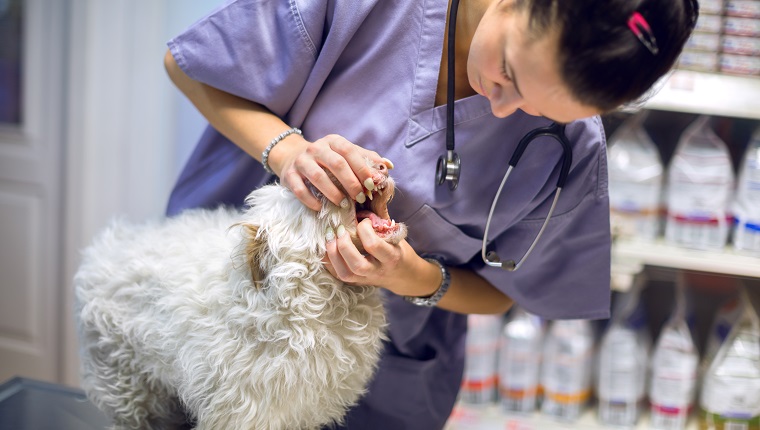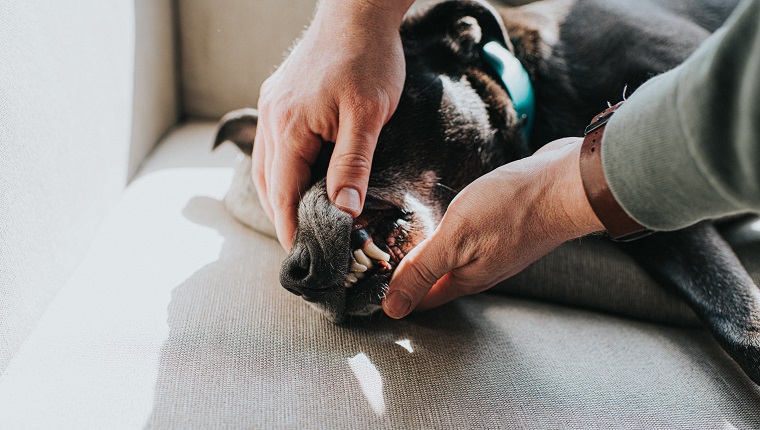Mouth tumors in dogs are growths inside the mouth that form due to cells replicating in an unregulated fashion. They can either be benign, meaning they do not spread, or malignant, which means they do spread.
Both genetic and environmental factors can be involved with the growth of tumors in dogs’ mouths. Certain breeds including German Shepherds, Golden Retrievers, and Boxers seem to be more prone to developing these tumors than other breeds.
If you see signs that your dog might have a mouth tumor, then you must consult your veterinarian for a proper diagnosis and course of treatment. Here’s what you should know about the symptoms, causes, and treatments of mouth tumors in dogs.
Symptoms Of Mouth Tumors In Dogs
Mouth tumors in dogs often appear as swollen areas on the gums, on the palate, or close to the teeth.
Some of the most common symptoms include:
- Swollen lymph nodes or a swollen face
- Bad breath
- Panting
- Loosing teeth
- Physically struggling to eat
Causes Of Mouth Tumors In Dogs

The cause of mouth tumors in a dog can be complex.
Many times, the development of these tumors involves a mixture of genetic factors and environmental factors.
In general, male dogs are statistically more likely to develop mouth tumors than female dogs.
Treatments For Mouth Tumors In Dogs
If your veterinarian suspects your dog is suffering from a mouth tumor, they’ll want to take a look at some of the tumor’s tissue at a microscopic level. This might involve the use of a process called fine needle aspiration, which is often abbreviated to FNA.
The FNA process uses a needle and a syringe to extract cell samples from the tumor. In certain cases, vets will consider a biopsy to confirm or rule out a mouth tumor.
If the vet confirms their diagnosis, they might suggest removing the tumor. In cases where the tumor has already spread to the dog’s bones, parts of the lower or upper jaw might need to be removed.
In some cases, other options for treatment could include radiation therapy and chemotherapy, which is a form of systemic therapy.
Has your dog ever had a mouth tumor? What kind of treatment did your vet give your dog? Tell us all about it in the comments below!









